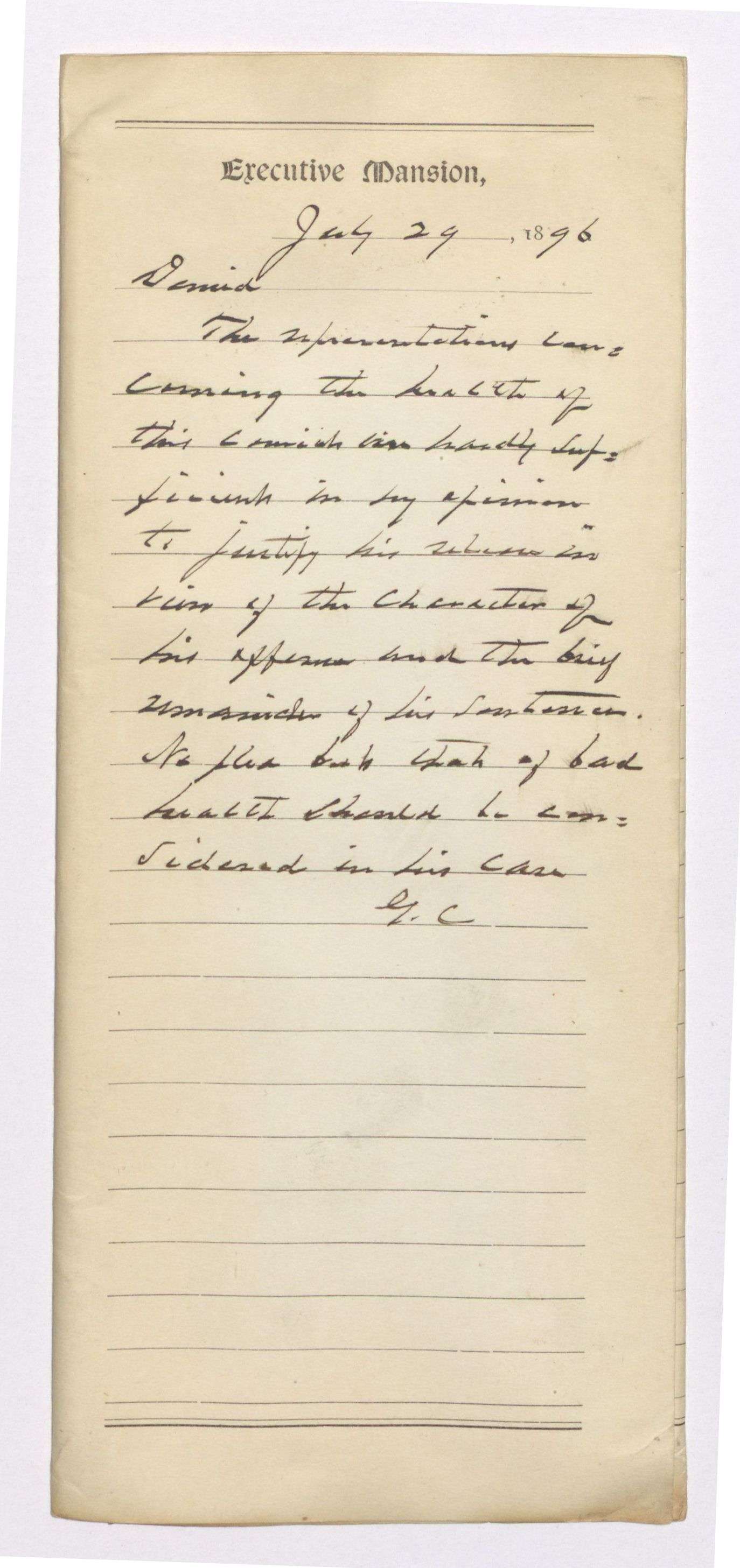Denial of Pardon for William D. Swann from President Grover Cleveland
7/29/1896
Add to Favorites:
Add all page(s) of this document to activity:

On January 1, 1896, William Swann was charged with “keeping a disorderly house” (known to be a euphemism for running a brothel). Newspaper accounts of the day reveal that Swann was actually holding a drag ball. After pleading not guilty, a speedy trial and conviction followed on January 3, 1896, and he was sentenced to 300 days in jail, to expire with good time in September 1896.
After pleading not guilty, a speedy trial and conviction followed on January 3, 1896, and he was sentenced to 300 days in jail, to expire with good time in September 1896. Three months into his sentence, Swann filed a petition of pardon pleading that he was a respectable hard worker with a long record of continuous employment, that the sentence was severe to the crime, and that if released he would “live a proper and law abiding life.”
While still pending presidential review, the friends of Swann started to call the US Attorney’s office expressing concern over his health. In July, the same doctor that had given him a clean bill of health in March reported that Swann had a disease of the heart, and that the conditions in jail endangered his life. President Grover Cleveland denied to issue a pardon on July 29, 1896, stating, in summary, that the implications of his health were not sufficient to counter the character of his offense.
After pleading not guilty, a speedy trial and conviction followed on January 3, 1896, and he was sentenced to 300 days in jail, to expire with good time in September 1896. Three months into his sentence, Swann filed a petition of pardon pleading that he was a respectable hard worker with a long record of continuous employment, that the sentence was severe to the crime, and that if released he would “live a proper and law abiding life.”
While still pending presidential review, the friends of Swann started to call the US Attorney’s office expressing concern over his health. In July, the same doctor that had given him a clean bill of health in March reported that Swann had a disease of the heart, and that the conditions in jail endangered his life. President Grover Cleveland denied to issue a pardon on July 29, 1896, stating, in summary, that the implications of his health were not sufficient to counter the character of his offense.
This primary source comes from the Records of the Office of the Pardon Attorney.
National Archives Identifier: 165128484
Full Citation: Denial of Pardon for William D. Swann from President Grover Cleveland; 7/29/1896; Pardon Case Files, 1853 - 1946; Records of the Office of the Pardon Attorney, Record Group 204; National Archives at College Park, College Park, MD. [Online Version, https://www.docsteach.org/documents/document/denial-of-pardon-for-william-d-swann-from-president-grover-cleveland, April 19, 2024]Rights: Public Domain, Free of Known Copyright Restrictions. Learn more on our privacy and legal page.



